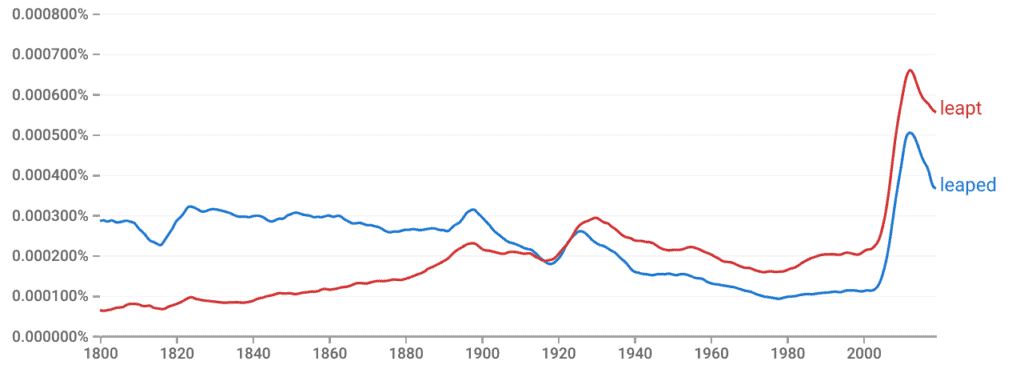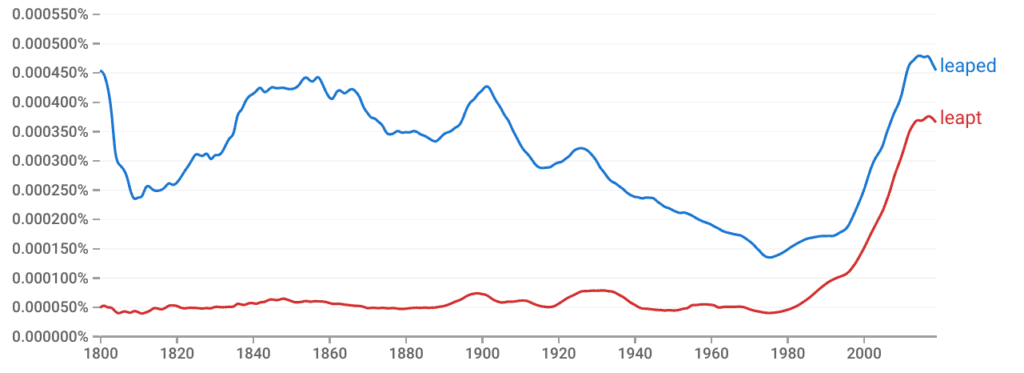Both leaped and leapt are past-tense and past-participial forms of the verb leap. Other than the spelling and pronunciation, there is no difference between them. Both are old, and leaped was more common in all varieties of English until about a century ago, when leapt became more common in British English. Today, both forms are frequently used in American and Canadian publications, while publications from outside North America tend to favor leapt.
This ngram, which graphs the occurrence of leaped and leapt in a large number of British texts published from 1800 to 2019, suggests that leapt‘s prevalence is a rather new development:
And the corresponding ngram for American texts suggests that leaped still prevails, but not by much:
Examples
U.S. and Canada
Former Senator Carol Moseley Braun leaped into the fray with the alacrity of a “Jeopardy!” champ. [New York Times]
Tom, a rugged tomcat, leapt up on another bar stool. [Globe and Mail]
The federal Liberals have leaped from third to first place in voter support in Atlantic Canada. [CBC]
But the escalator jerked to a stop, Humphrey leapt onto stable ground and the woman landed on the steps behind her. [Washington Post]
Outside North America
A teenager who leapt from a car driven by his mother to stab another youth has been detained for four years. [BBC News]
In Auckland, the upper-end of tax accountants’ salaries leapt from $100,000 a year last year to $120,000. [New Zealand Herald]
The former Macdonald Cycles employee leapt to fame in 2009 after uploading a video of himself riding around Edinburgh. [Guardian]
He made no mistake with his penalty, lashing the ball down the middle while goalkeeper Vozinha leapt to his left. [Irish Times]


Comments are closed.